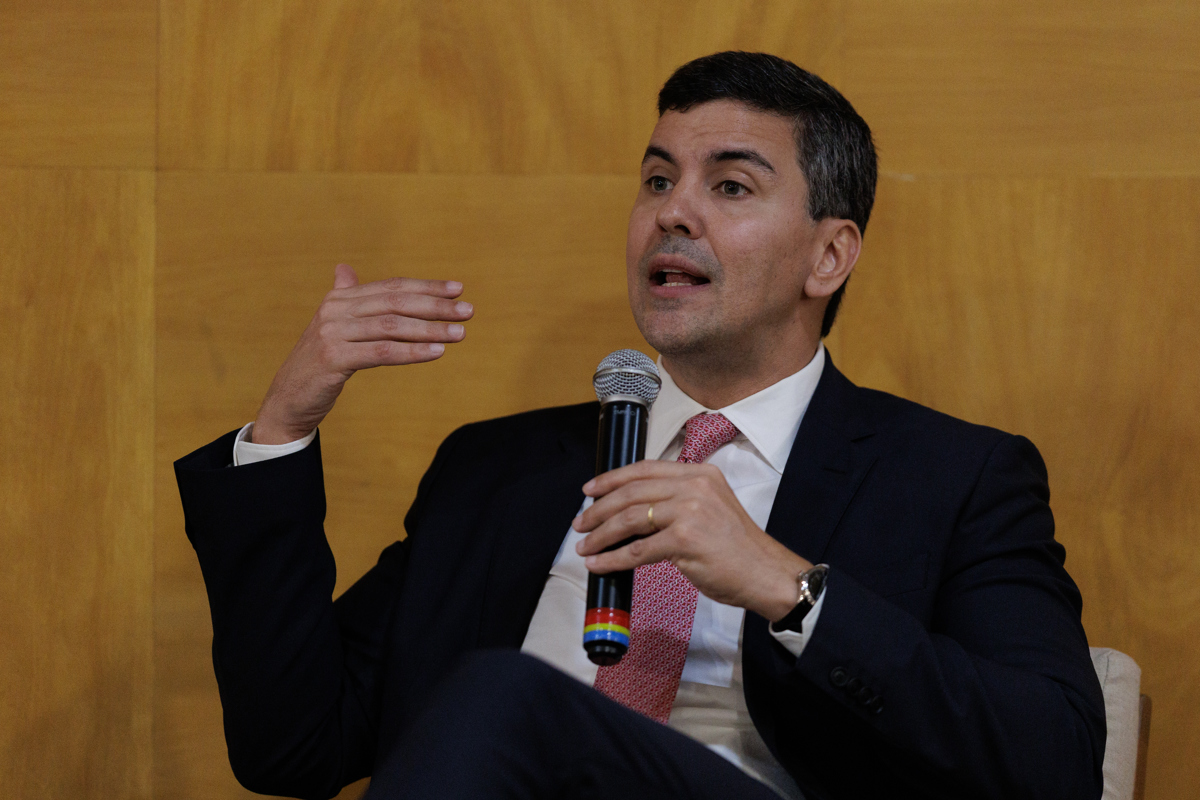The president of Paraguay on journalists in Venezuela

The president of Paraguay, Santiago Peña, denounced this Thursday, at the beginning of the 80th annual assembly of the Inter-American Press Association (IAPA), that autocratic governments such as those of Venezuela and Nicaragua have persecuted journalists until expelling them into exile.
“I pay a strong and heartfelt tribute to journalism in exile, that phenomenon that we have because of intolerant, autocratic governments, which I have censored and will continue to censor in all the forums I can,” said the president during a speech at the opening of the assembly. of the IAPA that meets in the Argentine city of Córdoba.
“(In) countries like Nicaragua or Venezuela, hundreds of colleagues who have been persecuted by authoritarianism and power and who have had to leave their own land to be able to continue speaking the truth,” added Peña, who signed the declaration at this meeting. of Chapultepec, the decalogue of principles on freedom of expression in the Americas approved on March 11, 1994.
The president stressed that although democracy “is strong” in Latin America, there continues to be insistence on “silence[ing]critical voices” and persecuting the press.
The three challenges of the Latin American press: Santiago Peña
The president of Paraguay, Santiago Peña, explained the three most important challenges of the Latin American press in the face of new technologies such as artificial intelligence, during his speech at the 80th Assembly… pic.twitter.com/EqOxhqvLFE
— Quadratín Michoacán (@Quadratin_) October 17, 2024
President of Paraguay reflected on the “new challenges” of journalism
He ratified his “commitment” to press freedom “in an unequivocal and enthusiastic manner.”
The head of state took advantage of his intervention to talk about a part of the media in his country, which he considered “still tied to the logic of the dictatorship”, in reference to the regime of Alfredo Stroessner (1954-1989), “in which the only thing that was possible was resistance, struggle, opposition,” he said.
“But today, fortunately, Paraguay does not live in a dictatorship, but we are far, very far, from an authoritarian government,” he said.
Peña also reflected on the “new challenges” of journalism, including artificial intelligence, which he described as a tool that facilitates the collection and analysis of data, but that can be used for manipulation.
“At the press level, the tremendous challenges that artificial intelligence poses for the manipulation of information, for deception, for large corporations, public or private, to manage our democracies, is clearly evident,” he warned.
He also said that the polarization of the press “is increasing” and criticized the fact that there are media that respond to the vision of business conglomerates or ideologies and not to the objectivity of telling the facts.
The problem, considers the president of Paraguay, is that polarization spills over into the community and becomes a breeding ground for authoritarianism or populism..
Independent journalism needs the support of its readers to continue and ensure that the uncomfortable news they don’t want you to read remains within your reach. Today, with your support, we will continue working hard for censorship-free journalism!
